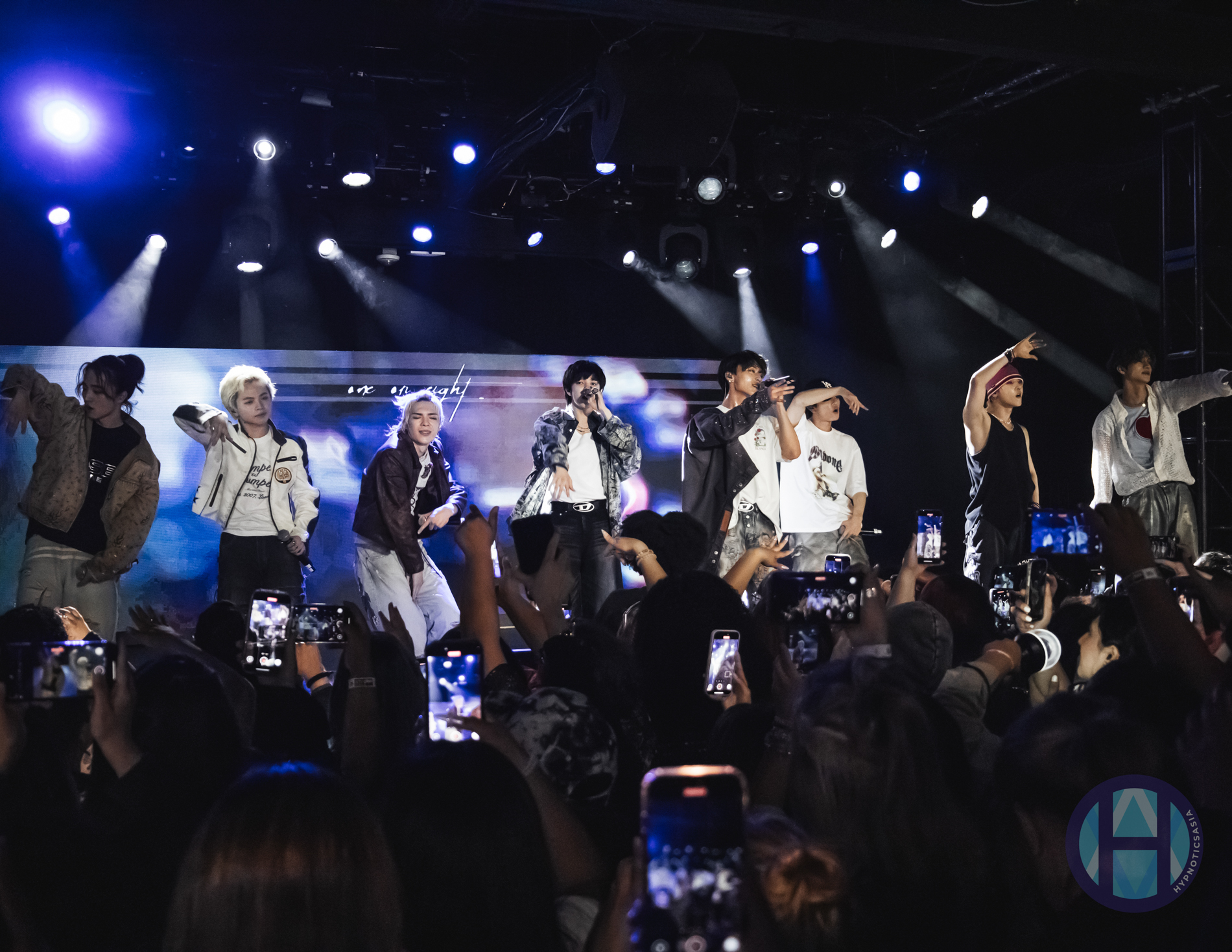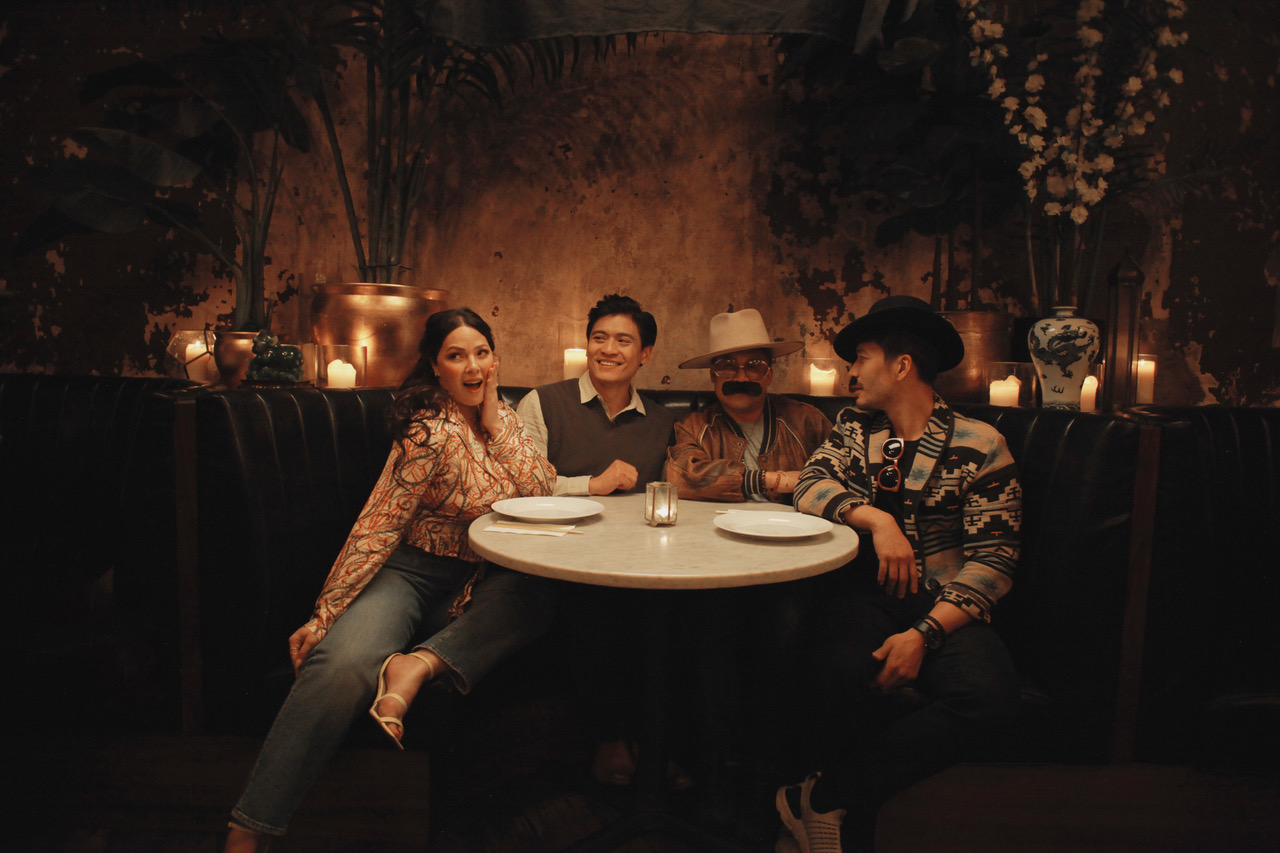LIL LEAGUE is a Japanese boy group that specializes in both vocals and dance. They made their debut in January 2023 with the track “Hunter” and have been actively promoting as a group. They won the Best New Artist Award at the 65th Japan Record Awards, while their debut single ‘Hunter’ ranked No.1 on the Oricon Chart and No.2 on the Billboard Japan Hot 100 chart. The group is managed by LDH Japan and signed to record label Rhythm Zone from Avex Group.
The group has just made their comeback with the album “TRICKSTER” which includes the track ‘Lollipop’. The song title hints at something sweet, but the theme of the lyrics is the contrast between “the surface and what lies beneath”, or the light side and the dark. The music video is almost at 4 million views!
Interview with LIL LEAGUE
Please introduce yourself to the HypnoticAsia readers.
Nakamura: LIL LEAGUE is a six-member dance and vocal boys group with an average age of 16. We debuted in January 2023 and held a concert hall tour last year. We’ve been working toward our goal of holding a dome tour.
About the Album “TRICKSTER”:
Can you share the inspiration behind the title “TRICKSTER” for your new album? How would you describe the overall theme or concept of the album?
Momoda: The word means like a jokester. It evokes the image of LIL LEAGUE, who sing both pop and dark songs, going back and forth between the stage face and the underside.
Were there any specific influences or experiences that shaped the sound and lyrics of “TRICKSTER”?
Yamada: We faced many obstacles before releasing this album. The worries and conflicting feelings we experienced are genuinely expressed in it.
Can you highlight a couple of standout tracks from the album and what makes them special?
Nakamura: “Rollah Coaster” for me. It’s not too much to say that LIL LEAGUE wouldn’t be what it is today without this song. It’s been part of our journey ever since we formed the group, so this is an important song that reminds me of how we started out.
Yamada: For me, “タングステン” and “アイドンケア.” All six of us don’t sing together but are grouped into two and four, which is our first attempt as a group. I’d recommend these tracks because they convey a strong sense of will.
Momoda: I’d say “YADA.” We performed it for the first time on the tour. It’s particularly memorable because LIL LEAGUE didn’t have a ballad song at the time.
Upcoming Release:
With the release date approaching, how are you feeling about sharing “TRICKSTER” with your fans?
Momoda: I’m very happy to finally be able to deliver our first album, as we produced it with the hope that our fans could enjoy it a lot. We put our all into this first album release.
Are there any particular messages or emotions you hope listeners will take away from the album?
Nakamura: This album represents the beginning, the present, and the future, so I hope our fans will enjoy it while not only finding out who we’ve been but also imagining who we’ll be in the future.
Live Performances:
Can fans expect to hear songs from “TRICKSTER” during your upcoming live performances?
Momoda: Of course, yes! We’re packing in new songs, so I’m sure our fans can enjoy our performances in new ways. Some of the newly released songs have parts where we’ll perform in groups of two and four. We’re thinking about a new concert direction.
How do you envision incorporating the new tracks into your set-list?
Yamada: I believe that the more options we have with new songs, the more everyone will truly enjoy our live performances, so we intend to consider the significance of performing the new tracks from various angles.
Reflection on Previous Work:
How has the band’s musical style evolved or experimented with this new release?
Nakamura: As our skills have steadily grown, we can do a wider variety of things. This way, we now better understand the characteristics of our stage performance. It’s not that we’re already perfect: we aim to use this album release as an opportunity to come up with a new concert direction and update our performances in an assertive manner.
How does “TRICKSTER” compare to your previous albums in terms of style and content?
Momoda: One of our strengths is that all of us can sing and rap, and this remains the same. On the other hand, the lyrics represent society more realistically and directly than before, so what they suggest to listeners would be different.
Are there any lessons or experiences from your earlier releases that influenced the making of this album?
Yamada: Since this album includes many songs, different songs would leave an impression on different people. We didn’t want to compromise on even a single song, so we took every track very seriously and put all our hearts into the recording process. I believe this reflects a great deal of our attitude toward music production.
Are there any upcoming projects or roles that you are excited about and would like to share with your fans?
Nakamura: I can’t tell you anything in particular at this moment, but I’d love to have more opportunities to meet our fans. I’ve been studying English hard, too. I’ll continue to improve my English so that I can communicate more with everyone.






